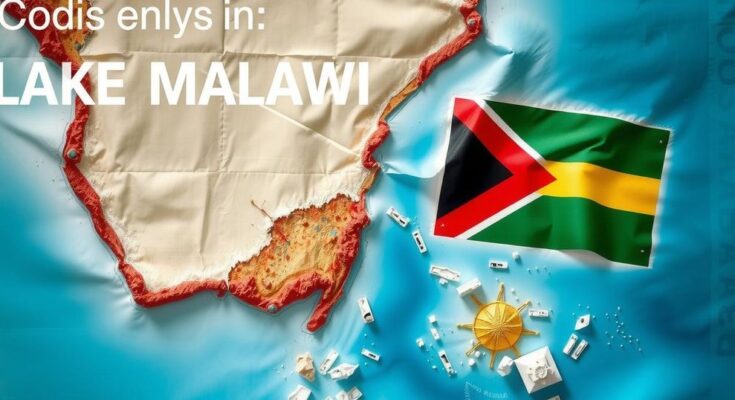The sovereignty dispute between Malawi and Tanzania regarding Lake Malawi centers on differing interpretations of historical treaties. Malawi claims full sovereignty based on the 1890 Anglo-German Treaty, while Tanzania advocates for a median line approach consistent with modern international practices. The dispute has significant implications for resource management and is a subject of ongoing diplomatic efforts, which have yet to result in an agreement.
The longstanding sovereignty dispute between Malawi and Tanzania over Lake Malawi, known as Lake Nyasa in Tanzania, remains a contentious issue. The discord arises from differing interpretations of historical treaties and international law concerning the lake’s ownership. Malawi claims the entire lake to its eastern shoreline based on the Anglo-German Treaty of 1890, asserting that this agreement establishes its sovereign rights. Conversely, Tanzania defends its position by arguing that the boundary should follow international norms that advocate for a median line through shared water bodies, asserting a fairer demarcation. This territorial dispute carries significant regional implications, as Lake Malawi serves as a vital resource for millions, while potential oil and gas reserves heighten competition over control. Despite various diplomatic efforts towards resolution, including interventions from the African Union, no agreement has been achieved, underscoring the challenges of harmonizing historical treaties with contemporary norms.
The dispute over Lake Malawi’s ownership between Malawi and Tanzania has historical roots linked to colonial agreements. The Anglo-German Treaty of 1890 is central to Malawi’s claim, which argues it established the boundary within what was once the British Protectorate of Nyasaland. Tanzania’s contention revolves around modern international practices that favor a median line for shared water boundaries, which they believe is a more equitable method of determining territorial rights. The lake is crucial for the livelihoods of millions, highlighting the broader implications of the dispute.
In conclusion, the sovereignty dispute over Lake Malawi continues to pose significant challenges between Malawi and Tanzania, driven by contrasting interpretations of historical treaties and current international practices. The geopolitical stakes, magnified by the lake’s resources, illustrate the complex nature of resource management in an increasingly interconnected region. Without a mutually agreeable resolution, tensions are likely to persist, influencing regional cooperation and stability.
Original Source: malawi24.com




